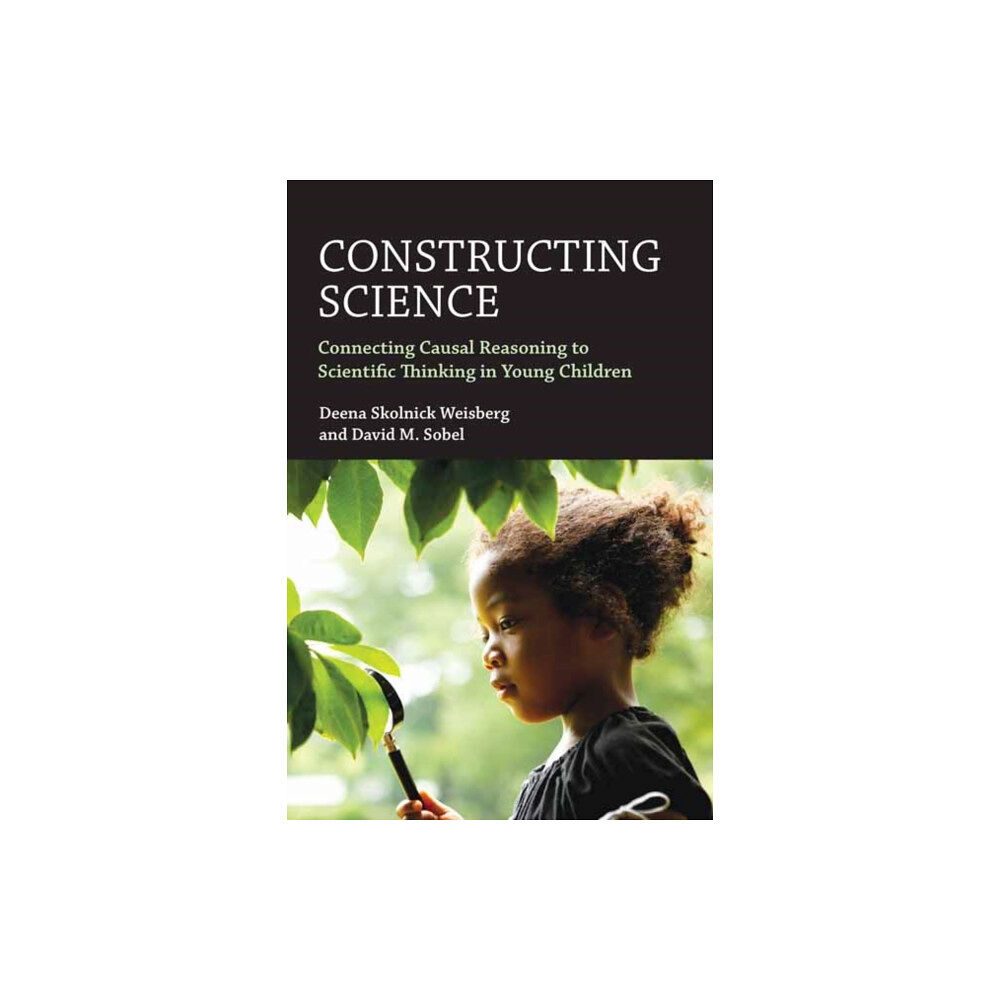- Hem
- Böcker
- Kurslitteratur
- Psykologi
- Constructing Science (häftad, eng)

Constructing Science (häftad, eng)
An examination of children’s causal reasoning capacities and how those capacities serve as the foundation of their scientific think...
659 kr
705 kr
Bara 2 kvar
Skickas inom 2-3 vardagar
- Fri frakt
Fri frakt över 299:-
Snabb leverans
Alltid låga priser
Produktbeskrivning
An examination of children’s causal reasoning capacities and how those capacities serve as the foundation of their scientific thinking.
Young children have remarkable capacities for causal reasoning, which are part of the foundation of their scientific thinking abilitiesIn Constructing Science, Deena Weisberg and David Sobel trace the ways that young children’s sophisticated causal reasoning abilities combine with other cognitive, metacognitive, and social factors to develop into a more mature set of scientific thinking abilities.
Conceptualizing scientific thinking as the suite of skills that allows people to generate hypotheses, solve problems, and explain aspects of the world, Weisberg and Sobel argue that understanding how this capacity develops can offer insights into how we can become a more scientifically literate society.
Investigating the development of causal reasoning and how it sets the stage for scientific thinking in the elementary school years and beyond, Weisberg and Sobel outline a framework for understanding how children represent and learn causal knowledge and identify key variables that differ between causal reasoning and scientific thinkingThey present empirical studies suggesting ways to bridge the gap between causal reasoning and scientific thinking, focusing on two factors: contextualization and metacognitive thinking abilities. Finally, they examine children’s explicit understanding of such concepts as science, learning, play, and teaching.
Young children have remarkable capacities for causal reasoning, which are part of the foundation of their scientific thinking abilitiesIn Constructing Science, Deena Weisberg and David Sobel trace the ways that young children’s sophisticated causal reasoning abilities combine with other cognitive, metacognitive, and social factors to develop into a more mature set of scientific thinking abilities.
Conceptualizing scientific thinking as the suite of skills that allows people to generate hypotheses, solve problems, and explain aspects of the world, Weisberg and Sobel argue that understanding how this capacity develops can offer insights into how we can become a more scientifically literate society.
Investigating the development of causal reasoning and how it sets the stage for scientific thinking in the elementary school years and beyond, Weisberg and Sobel outline a framework for understanding how children represent and learn causal knowledge and identify key variables that differ between causal reasoning and scientific thinkingThey present empirical studies suggesting ways to bridge the gap between causal reasoning and scientific thinking, focusing on two factors: contextualization and metacognitive thinking abilities. Finally, they examine children’s explicit understanding of such concepts as science, learning, play, and teaching.
| Format | Häftad |
| Omfång | 384 sidor |
| Språk | Engelska |
| Förlag | MIT Press Ltd |
| Utgivningsdatum | 2022-09-20 |
| ISBN | 9780262044684 |
Specifikation
Böcker
- Häftad, 384, Engelska, MIT Press Ltd, 2022-09-20, 9780262044684
Leverans
Vi erbjuder flera smidiga leveransalternativ beroende på ditt postnummer, såsom Budbee Box, Early Bird, Instabox och DB Schenker. Vid köp över 299 kr är leveransen kostnadsfri, annars tillkommer en fraktavgift från 29 kr. Välj det alternativ som passar dig bäst för en bekväm leverans.
Betalning
Du kan betala tryggt och enkelt via Avarda med flera alternativ: Swish för snabb betalning, kortbetalning med VISA eller MasterCard, faktura med 30 dagars betalningstid, eller konto för flexibel delbetalning.
Specifikation
Det finns tyvärr inga specifikationer att visa för denna produkt.
